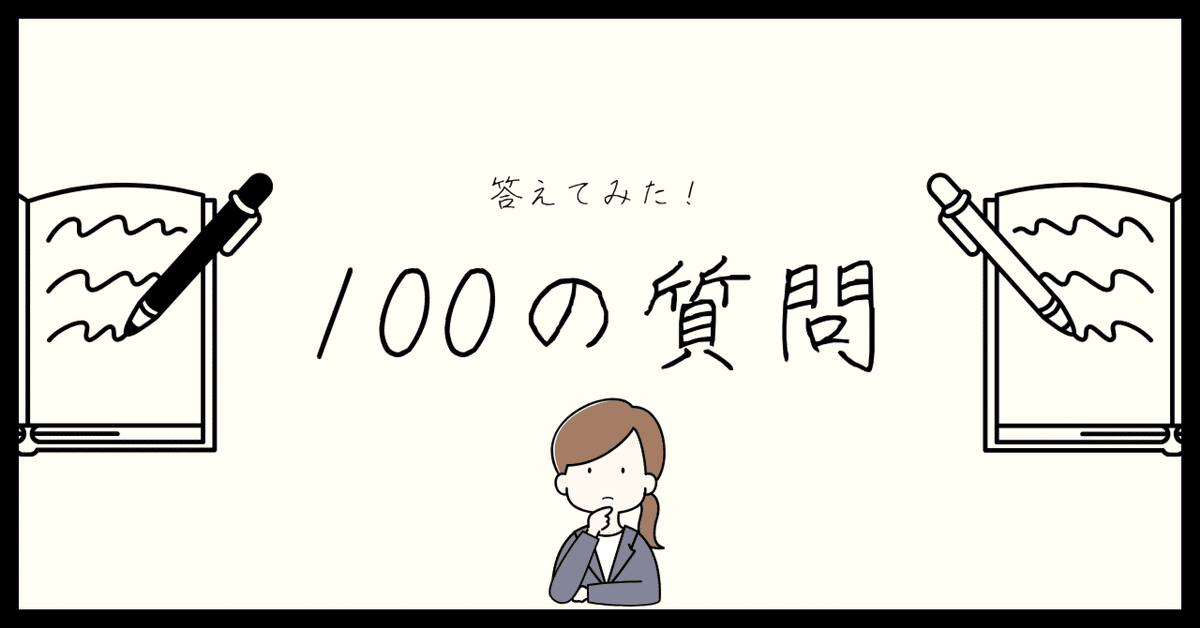
社会人のコミュニケーション力診断【第1位】Q&A力を磨く方法…なし!
「 質問に答えて! 」「 質問の答えになってない! 」
なんてシーンは、ビジネスにおいて日常茶飯事です。で、残念なお知らせです。これ、ずーっと無くなりません。その理由が、残念なお知らせなんです。なぜなら
本人が自覚していない
そうなんです。質問に答えられないのではなく「 相手の質問に答えていないことを自覚していない! 」これが本当の問題であり、残念なお知らせです。
この問題、どーやったら解決していくんでしょうね…結論先送りで考えていきたいと思います。
なぜ「 質問に答えていないこと 」に気づかないのか?
(1)会話は成立している。けど、意味が成立していないケース99%
できる限り自分に正直に生きている私でも、指摘する相手を選びます。
上司部下の関係なら「 そんなこと聞いてへん! 」「 質問に答えろ! 」「 最後まで黙って質問を聞け! 」と、相手がこちらの質問を聞ける人間になるまで矯正(強制)します。基本、質問に答えられない人は、質問を聞いていません。ほぼほぼ「 自分の都合で 」「 聞きたい様に 」聞いています。
が、これが相手が顧客の場合、私の選択肢は2パターンになります。
(1)質問を変える
(2)諦める
(2)は、悲惨です。( あぁ~、この人は無理やなぁ… )と見切ってしまう残酷さです。この場合、相手に期待せず、勝手にこっちが方針を決めつけて進めていくことになります。ので、最後の最後、相手の思惑と異なった着地になってしまうことが増えます。相手の表情がしっくりきていないことが増えます。
起きている現象、伝わったでしょうか?
私は、多くの日本人と比べて「 質問の答えになっていない!と指摘する人 」です。が、大半の日本人は「 スルーする 」んです。ですよね?ので、質問の答えになっていなかったとしても「 会話が成立して 」しまいます。が、意味は成立していません。ので、質問の答えになっていないまま、会話は流れ続けます。
だから、質問に答えていないことを自覚できないままの人が、日本全国で放置され続けています。
(2)傾聴、コーチングブーム
聞くことは、ここ数年「 聞くブーム 」によって、以前に比べ多くの人がその重要性を認識している感があります。これが不味いんです。聞く講座、聞くセミナー、聞く本で、聞くスキルを学んで学んだ気になっている「 エセ聞くラー 」が量産されています。
コーチや講師を始める人がコロナ禍で爆増加しました。が、私の感覚では、相手の話をまともに聞けているコーチや講師は1%も見当たりません(T_T)…。どゆこと?
聞く重要性やスキルを学んだとしても「 相手が何を意図して質問しているのか? 」とういう「 Q&A力 」の双方向を理解していないから、学びが一面的なんですよね。
Q&A力を因数分解すると?
「 Q 」とは?
傾聴力や質問力だけではなく
(1)問われている質問を理解する力
(2)質問の意図を推し量る力 」
そして、
(3)自己中ーで聞いてしまっているポジティブバガな自分を認知する力
までを言います。
質問力を磨きたい人は「 ロジカル質問術 」
自己中ーな聞き方から脱却したい人は「 ストレスゼロ対話力 」を精読&理解しまくってください!
「 A 」とは?
(1)論点を理解する力
(2)要点をまとめる力
(3)結論だけファーストする力
で、必要なのは、一言で言い切る愛と勇気です。
Q&A力を、マジで磨きたい人の選択肢は?
A:本音で「 質問に答えて 」とフィードバックしてくれる相手を探す
これ以外にありません😁
で、質問に答えることが苦手という自覚がある人は、全てのコミュニケーションシーンで
(1)結論ファースト
(2)結論「 一言 」ファースト
(3)録音して聞く
100万回繰り返しましょう。録音して聞くことで、ようやくメタ認知が働きます。すると、意識して聞けば、自分が相手の質問を無視していることに気づける……かもしれません。そこに気づける様になれば、他人同士の会話でメタ認知が働いてきます。( あ、今の、質問に答えてへんやん… )って。で、結論ファースト&結論一言ファーストを100万回繰り返しているうちに、質問に答えられる自分になっています。
を、実際に行動する人がいません。ので、ずーっと解決しない無限ループが続いとるわけですな!うーん、難題!
私は、こんな方法で「 質問に答えろ! 」という課題をクリアしたぜ!って方は、ぜひ教えて下さい。
英語学習のため記事をAI(Gemini)で全文要点英訳
Let's break down the text and create a more concise and understandable English translation.
Understanding the original text
The Japanese text discusses the common issue of people not answering questions directly in professional settings. The author argues that this problem is often due to a lack of self-awareness and a misunderstanding of the true nature of effective communication. The text also criticizes the recent trend of focusing solely on "listening skills" without addressing the broader context of question-and-answer dynamics.
Proposed English translation
Here's a more concise and clear English translation:
"The Art of Answering: Why We Miss the Point
We've all been there: a conversation where one person asks a question, and the other gives a completely unrelated answer. It's a common problem in business, and unfortunately, it's not going away anytime soon.
The real issue isn't that people can't answer questions; it's that they don't realize they're not answering the question. This lack of self-awareness is the root of the problem.
Why does this happen?
Miscommunication is common: Even when a conversation seems to flow smoothly, it often lacks substance. Many people are more focused on what they want to say rather than listening to the other person.
The listening craze: There's been a recent surge in interest in "listening skills," but many people who've taken these courses still struggle to truly understand what others are saying. They're often more focused on techniques than on the actual meaning behind the words.
What is the solution?
To truly improve your ability to answer questions, you need to:
Understand the question: This means not just hearing the words but also grasping the underlying meaning and intent.
Be concise: Get straight to the point and avoid rambling.
Practice self-awareness: Listen to recordings of your conversations to identify areas where you might be missing the mark.
The bottom line:
If you want to be a better communicator, you need to make a conscious effort to focus on the other person's question and provide a direct and relevant answer. It's not easy, but it's essential for building strong relationships and achieving your goals."
Key points emphasized in the translation:
The importance of self-awareness in communication.
The distinction between hearing and truly understanding.
The need to focus on the intent behind questions.
The value of concise and direct answers.
The role of practice and self-reflection.
Would you like me to translate any specific sections or provide more context?
